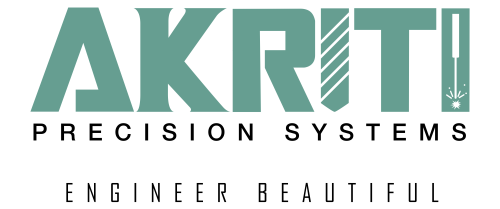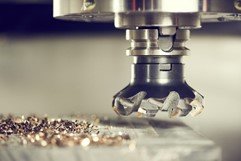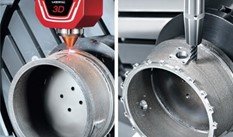CNC APPLICATIONS & BENEFITS
NC (Numerical Control) machining has been around since 1950’s and once computers were more popular it began to be called CNC (Computer Numerical Control). For decades it’s been a tried and trusted method of fabrication for multiple materials like aluminum, carbon and stainless steel, titanium, brass, castings, plastic, wood, gold, silver and synthetic materials including ABS, composites, polycarbonate and others.
Nearly anything that requires engineering or planned design most likely involves CNC’s in some way. All kinds of industries and businesses need quantities of large and small metal and plastic components that may become part of anything from automobiles to zoos.
If you’re reading this on a computer or handheld device, it probably contains something created by CNC’s. If you drive a car or have machines in the garage, they are likely to have components produced with CNC’s. There is much to gain from learning about the CNC processes and how it can benefit your unique business application.
WHAT IS CNC MACHINING?
CNC refers to computer-numerical control machining, and it automatically operates machine parts including lathes, routers, grinders, shapers, mills and more under the control of a computer instead of a human operator. Compared to manual operation, CNC reaches an exponentially faster and more precise level of production through multitasking. The process employs several axes at once to accomplish the jobs.
The computer controlling the machine is not your average desktop computer. CNC brains are located in a console and programmed with “G-code” written especially for CNC’s. The code contains elements that enable control over feed rate, coordination, speed and position. The code also helps produce precise, consistent parts that end up as products or building blocks of products.
CNC-machining involves exact, high-speed movements that enable expedited production, customization and several opportunities to gain benefits. CNC’s most often involves doing the jobs of lathes, routers, mills and grinders, and it encompasses bending, forming, turning, Swiss-style machining and other processes as well.
Application Across Industries
CNC’s have many uses across diverse industries. CNC machine is not limited to any single sector. All kinds of businesses need precisely machined parts with unfailing consistency. Countless industries use CNC’s for their metal fabrication needs, including but not limited to the following
Aerospace Metal aircraft components can be machined to a high level of precision, which is essential for safety-critical applications, and the range of engineering metals compatible with CNC provides aerospace engineers with plenty of options. Machinable aerospace components include engine mounts, fuel flow components, landing gear components, and fuel access panels. |
|
| Automotive Extruded metal can be machined into cylinder blocks, gear boxes, valves, axels, and various other components, while plastic can be machined into components like dashboard panels and gas gauges. |
Consumer Electronics CNC’s are widely used for the prototyping and production of consumer electronics such as laptops and smartphones. Machined Aluminium and Magnesium chassis for certain expensive laptops are CNC machined to perfection. |
|
| Defense The military sector frequently turns to CNC’s for the prototyping and high precision production of rugged and reliable parts that will withstand wear and tear with minimal upkeep. |
Dental Dental implants need machining to be just exactly the right shape. Besides the items that are surgically implanted, there are also the tools the doctors and assistants use. CNC’s puts just the right point, angle or bend on the business end of the instruments, as well as the texture on the handle that helps the professionals keep their grip. |
|
| Shipping Manufacturing of specialized molds, trimmings, hull parts, furnishings for specialized parts and components on boats and yachts. |
Hospitality Making parts & accessories for bars, restaurants, hotels especially where high customization is required. |
|
| Prototyping CNC machines are highly useful for prototyping for any industry where quick design validations are required. |
Firearms |
|
| Tooling In addition to being an excellent direct manufacturing process, CNC’s can be used as an indirect manufacturing process to aid processes like injection molding. |
Hybrid Manufacturing A CNC does not have to be used independently of another manufacturing process. Combining it with other processes like 3D printing or metal casting can lead to superior parts and products. |
Benefits of CNC Machining
A huge benefit of CNC is how it not only performs in all kinds of environments, it enhances the business’s overall bottom line by doing the job faster and more cleanly than any other method reducing manual errors. Many essential metal fabrication tasks are made easier and faster with CNC’s for example
- Boring
- Contouring
- Cutting
- Drilling
- Engraving
- Facing
- Grinding
- Grooving
- Knurling
- Lathing
- Milling
- Punching
- Shearing
- Shaping
- Stamping
- Tapping
- Texturing
- Threading
- Turning
- Welding
The full range of capabilities that a CNC delivers makes it possible to create just about anything part or tool a business needs.













